Relevant Overviews
- Communication Strategy
- Content Strategy
- Online Strategy
- Online Community Management
- Social Media Strategy
- Content Creation & Marketing
- Online Architecture
- Digital Transformation
- Change & Project Management
- Thinking tools
- Fediverse
- Blockchain, Crypto, NFTs etc
- Innovation Strategy
- Communications Tactics
- Psychology
- Personal Productivity
- Social Web
- Media
- Politics
- Communications Strategy
- Science&Technology
- Business
- Large language models
Overview: Online Community Management
Convening a community can be the most powerful communication tactic there is.
Online communities offer enormous opportunities to the right organisation. Community members are far more likely to read your content, think of your organisation, give you feedback, share your content, attend your events, get involved in your programmes, and buy your products.
On the other hand, convening a community is hard: few people have time for more than a couple of online platforms in their lives, so attracting them to yours means you need to be uniquely useful to them.
That generally requires a change of mindset and new internal processes across the organisation, because it’s not your community - it's theirs. And getting their involvement means really listening to what they have to say, and then visibly acting on it.
I built the EU Commission’s first online community in 2002, and have built many more successful ones since. If you’d like to chat, get in touch.
More services: start with Communication strategy.
Relevant resources
Michael Foster's "top ten unfinished building blocks" are:trust & safety: "heart of an ethical social web... [currently] delegated to a small group of volunteers... [but] green shoots emerging"spam filters: "there are some amazing tools now... Pixelfed has shown what can be done"safe spaces / bridging & f…

"A deep dive into Robert Putnam's Bowling Alone", over 20 years later, by "former New_ Public Research Fellow Serena Chao".Social capital, according to Putnam, "is the “connections among individuals — social networks and the norms of reciprocity and trustworthiness that arise from them”... [making] a strong case for a…

Anuj Ahooja asks, on Threads' first birthday, the "existential question... Why does Threads exist? ... an alternative to Elon Musk's X. But ... a platform can't exist to be "an alternative." It should be able to stand alone with its unique purpose and be built to incentivize users to follow that purpose... [unfortunat…

What happens when we make machines "that we can’t help but treat them as people"?While "GPT-4o doesn’t represent a huge leap ... it more than makes up in features that make it feel more human... an ability to “see” and respond to images and live video in real time, to respond conversationally ... to “read” human emotions from visual…
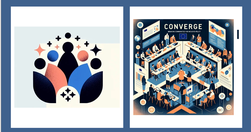
Earlier this week I used an excerpt from a chat with Philip Weiss & Jesús Azogue as a starting point for a conversation with ChatGPT about some of the content in my Hub.
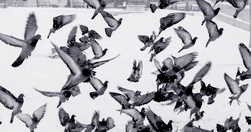
One of my favourite writers/thinkers on all things digital future is "finally, definitely, fully leaving X, and probably all social media..."
"an initial analysis of a growing movement ... to make key machine learning tools and technologies open and shared. “Open Artificial Intelligence”...BLOOM is a large language model released under RAIL – a new copyright license that combines an Open Access approach to licensing with behavioral restrictions aimed to enforce a vision of responsi…
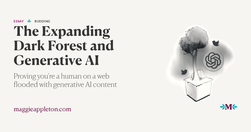
Starts with articulating I've been meaning to write for many years about the oncoming AI-driven content flood: "The dark forest theory of the web: ... life-like but life-less state of being online... overrun with bots, advertisers, trolls, data scrapers, clickbait... algorithmically manipulated junk... eerily devoid of human life ... liv…

4 ways Mastodon doesn't optimise for enragement.On Mastodon’s "home timeline... posts don’t have metrics ... you have to click through ... makes you judge a post first by its content, rather than the score attached to it... the whole dynamic [being "ratioed"] doesn’t exist... leads to more thoughtful engagement rather than ... …
we could, and should, be better at collective memory, collective thinking, and collective intelligence... level up from an oral culture that thinks big thoughts but doesn't do much else together
Via FotL I discover "Canonical Debate Lab (CDL)... researchers, developers, and system thinkers who have independently been working on collective intelligence systems for several years... goal is to aggregate contributions of diverse stakeholders into a unified information space, which can be accessed through multiple views... tailored to a s…
"to provide for Progressive Trust, you need to establish what is known as an "Intimacy Gradient"". From architect Christopher Alexander's "A Pattern Language: Towns, Buildings, Construction:Pattern #127 - Intimacy Gradient:Conflict: Unless the spaces in a building are arranged in a sequence which corresponds to their…
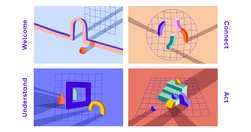
New Public "spent two years reviewing the literature and talked to over 100 experts from disciplines ranging from social psychology to urban planning about the qualities of flourishing public, or semi-public, spaces" for their Building better digital public spaces report. The goal: "to support engineers, designers and builders who w…

"I first decided to try scribing the Betaworx Render session on Plexus using Obsidian and try publishing it via GitHub (context). That didn't work, so when I saw [[rtnf md]] I thought I'd give it a whirl... the idea [of Plexus] is simple:post your thoughts into a defined shared brain on Plexus - eg : https://render.plexus.earth/the …

Systems with Design from Trust: assume most (not all) people have good intent."initially feel counterintuitive, even risky...social: they rely on human relationships. appealing: once you wrap your head around them, you want more."The discomfort is a symptom of how today's default setting is mistrust: "we’ve internalized the ass…
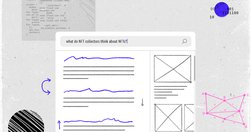
Basically this piece starts to unpack for me my ideas of what millions of Hubs networked together and processed by AI would offer the world in terms of content discovery:With "tools like Notion, Airtable, and Readwise ... people are aggregating content ... reviving the curated web. But at the moment these are mostly solo affairs... fragmented…
"Hitting “publish” on this, my first blog post on Knowledge4Policy (K4P), is a special moment for me. I’ve helped create a few online communities for the European Commission (I launched my first in February 2002, so I just missed that particular anniversary), but K4P may be the most important."
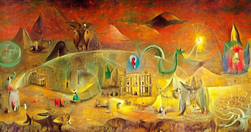
tokens Trojan horse principles of cooperatives directly into highly financialized spaces... [but] as tokens that double as governance rights can be sold on secondary markets... DAOs can learn from cooperatives’ emphasis on long termism... DAOs could introduce more forms of decentralized governance into cooperatives.

OP Arcade is:HTML5 game platform, with tournament competitionsgame developers contribute games which are transformed into fractionalized NFTs buyers collect nfts, co-own gamesplayers can play for free (?)DAO for "game owners to make proposals, vote for game updates, fund additional development"The community: "players, game owners an…
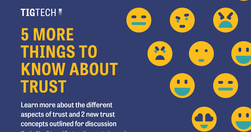
"5 interesting things ... distilled from a helicopter view of trust from various branches of psychology, sociology, behavioural science and Responsible Research and Innovation."focus on others: "perhaps similar to love and happiness, the more doggedly trust is pursued for its own sake, the more elusive it may become", so turn y…
Wikis are like Minecraft for thought — very simple, very open-ended... can generate complex living systems, from personal notes, to collaborative fansites, to Wikipedia.While open-ended, there's scarcity: there can be only one page for each name, forcing "negotiation, communal norms, communal goals, communal meanings... Open-ended meanin…
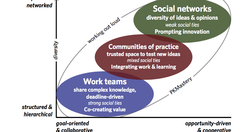
Jarche's network learning model encompasses 3 zones (social networks, communities of practice and work teams), with each activity involving both working out loud and personal knowledge management.There are several facets, each looking different depending on the zone - for ex:you share your work freely with your work teams (you are, after all,…
Excellent piece on the Dunbar number, and its implications for social media and society: "For hundreds of thousands of years, we lived together in small hunter-gatherer bands... with the same few dozen people... Our wetware reflects this fact. We can keep track of about 150 friends... 22,350 relationships ... number grows exponentially with t…

Fascinating longread: "inside story of how the W3C ... became a key battleground in the global fight for web privacy", covering:how a few companies (browser engineers) traditionally dominate W3C (pre-vote) conversations,new & disruptive entrants to W3C working groups fighting to save existing ad-tech models following Google's la…
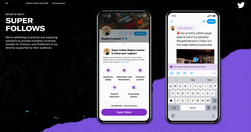
"Clubhouse and Twitter’s “Super Follows” offer a new kind of engagement".Makes a good case against the algorithmic feed, which condition us to follow and post repeatedly and create a feed full of attention-grabbing content. That feed's "great at keeping us hooked, scrolling & coming back... and great for advertisers... but …

This article absolutely nails why I can't stand LinkedIn anymore, describing the site as completely performative, and the "LinkedIn newsfeed ... as a vast wasteland... almost entirely filled with marketing gurus, salespeople talking sales, and recruiters and “career coaches” offering the same job search tips over and over".Why? Beca…
A "perverse downstream consequence for debunking... being corrected by another user for posting false political news increases subsequent sharing of low quality, partisan, and toxic content".Looks like evidence for the backfire effect: "Direct correction ... backfires by making people feel defensive or focusing their attention on so…

Common complaints about social media platforms "sound contradictory. They’re:accelerators for extremism that simultaneously uphold suffocating consensuswastes of attention and should play a smaller role in people’s lives; however, they also need to be improved, refined and purged of bad actors, advanced surveillance machines ... routinely s…
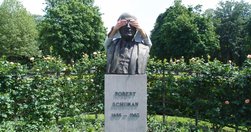
"Europe deserves a forum where passionate Europeans share, debate and package ideas into policy proposals their fellow Europeans can vote on in 2024." But the CoFoE simply shows the hallmarks of previous efforts, like "the “New Narrative for Europe”, a kind of weird uncle to the Conference on the Future of Europe" created by Ba…
Relevant Overviews
- Communication Strategy
- Content Strategy
- Online Strategy
- Online Community Management
- Social Media Strategy
- Content Creation & Marketing
- Online Architecture
- Digital Transformation
- Change & Project Management
- Thinking tools
- Fediverse
- Blockchain, Crypto, NFTs etc
- Innovation Strategy
- Communications Tactics
- Psychology
- Personal Productivity
- Social Web
- Media
- Politics
- Communications Strategy
- Science&Technology
- Business
- Large language models